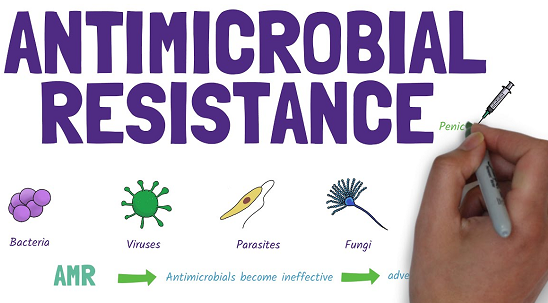THE ‘Take Back Unwanted Medicines’ (TBUM) programme has been launched in Ho as part of activities to commemorate this year’s World Antimicrobial Resistance Awareness Week.
This was under the auspices of the University of Health and Allied Sciences (UHAS), University College London Hospitals (UCLH) and Ho Teaching Hospital (HTH), in collaboration with the Food and Drugs Authority (FDA).
The TBUM project is an initiative by the FDA to retrieve unused and expired medicines from consumers and supervise their safe disposal in accordance with the Public Health Act and the provisions of the National Drug Policy.
It was initiated with support from some pharmacies to introduce sustainability into the product life cycle of pharmaceutical products in Ghana.
The theme for this year’s celebration was “Preventing Antimicrobial Resistance Together.”
An antimicrobial is an agent that kills microorganisms or stops their growth.
The Lead, UHAS/HTH/UCLH, Health Partnership, Dr Cornelius Cecil Dodoo, said at the launch last Tuesday that the TBUM crusade did not only focus on hospitals but also involved other stakeholders, including community pharmacies, to help identify potentially substandard and falsified medicines.
“We are also engaging members of the community by creating awareness to return any leftover, expired or unwanted medicines, especially antimicrobials,” he added.
Dr Dodoo said the exercise was being undertaken with the FDA, which had the expertise in the disposal of medicines appropriately.
He pointed out that proper disposal of medicines was important in promoting public health and conserving the environment, saying the TBUM programme would, for that matter, run for a long time to ensure unwanted medicines were not left in homes.
In that vein, Dr Dodoo said more sites for the project would soon be added to the HTH and the Ho Municipal Hospital.
“We are also engaging members of the public through a survey on how they currently dispose of leftover medicines, and our findings will influence our approach during our radio engagements with the community for a tailored public education,” he said.
The Pro-Vice-Chancellor of UHAS, Professor Harry Tagbor, noted that many people who were ill often bought medicine off the counter without seeking attention at the health facilities. That irrational use of drugs, he said, was a big public health problem.
Professor Tagbor highlighted the need for the TBUM project to go beyond hospitals since many people did not go to the hospital when unwell.
The Volta Regional Head of FDA, Gorden Akurugu, said chemical substances from unused medicines ended up in water bodies and the soil, posing dangers to animals, plants and aquatic life.
Further, he said, medicines that were not disposed of properly had the risk of falling into the hands of children and people who could abuse them, leading to serious complications to their health.

